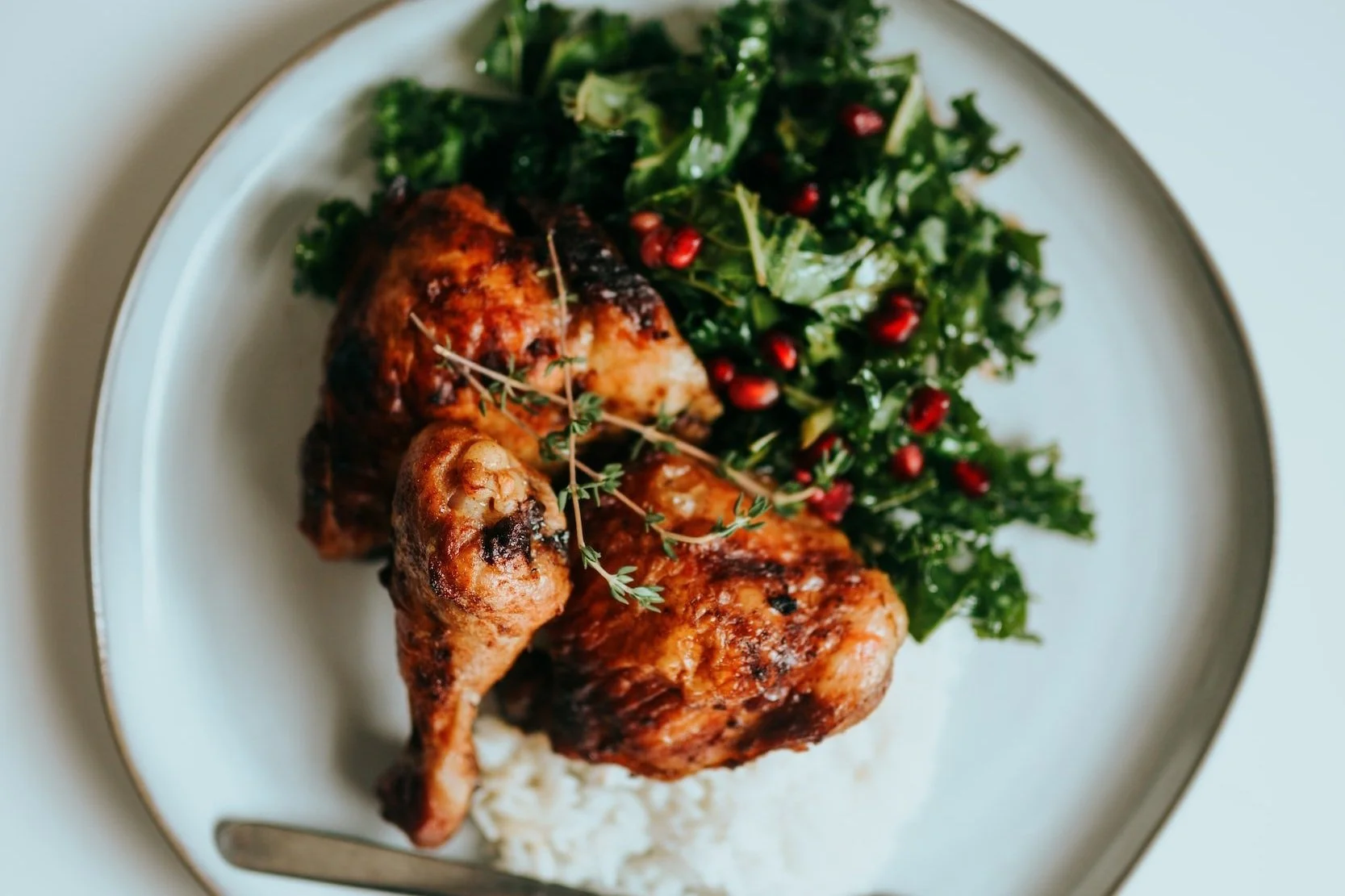The best diet for PCOS
If you’ve been diagnosed with PCOS, then at some point you’ve probably googled “The best diet for PCOS”. In fact, maybe that’s how you ended up here, and if so, welcome! I’m so glad to have you!
Now before we dive into the nitty gritty of nutrition and PCOS, it is important to understand that PCOS is an umbrella term. This means that within PCOS, women can experience different symptoms and different hormonal imbalances, and therefore have different needs nutritionally.
That means (spoiler alert!), there is no one diet for PCOS.
That’s right. Not the low-carb diet. Not Intermittent Fasting. Not Keto. There is no one-size-fits-all diet when it comes to PCOS.
That’s because ALL of these diets are missing one crucial ingredient: YOU.
Your food preferences.
Your lifestyle.
Your history with food.
Your hormone health.
Your environment.
Your goals.
Your capacity.
The list goes on. The takeaway is that any diet that doesn’t take you into account will at best, work for a while, and at worst, create more harm than good. In fact, I often see these cookie-cutter diets only drive more anxiety, overwhelm, and self-blame with my clients, and that’s definitely not supporting the PCOS healing process.
So instead of focusing on that list of “yes” foods and “no” foods, I help my clients integrate key principles of nutrition for PCOS that are adaptable to their needs. This means that when I work with women with PCOS, it is ALWAYS a collaborative approach because although I am the nutrition expert in the relationship, they are the expert of their own lives and their own bodies.
So if you’re ready to ditch diets that aren’t meant for you, and start using a custom approach that is not only doable but effective in resolving your PCOS symptoms, here are 5 Key Pillars of Nutrition that are foundational to treating PCOS so that you can start feeling better sooner rather than later.
5 Key Pillars of Nutrition that are foundational to treating PCOS
Get enough protein at every meal.
For most women, this looks like getting at least 30g of protein for breakfast, lunch, and dinner. Protein helps keep blood sugar balanced which reduces insulin resistance and improves androgenic symptoms like acne, hair loss, and unwanted hair growth. Protein is also incredibly satiating which will help eliminate those cravings that seem to show up out of nowhere.
Now I bet this isn’t the first time you’ve heard of the importance of protein. In fact, food marketers have also caught on to this message which has resulted in an influx of protein “products” like protein bars, protein chips, protein pancakes, etc. Name the food and there’s probably a company that has protein-ified it. When I’m talking about getting enough protein, I’m talking about quality proteins from beef, chicken, fish, dairy, and eggs. Your hormones will LOVE these protein sources as they provide your body with essential amino acids that balance your mood, support liver detox, and improve sleep.
Eat enough at regular meal times throughout the day.
Do you tend to skip breakfast? Or just grab a protein shake on your way to work? Do you graze on small snacks throughout the day? Or eat sporadically whenever you can fit it in? Although these habits have been normalized in our society, they can cause serious damage to PCOS.
Sporadic eating schedules and skipped meals are incredibly stressful on the body. Not only do they drive up cortisol levels, but can disrupt appetite signaling. This often shows up as midday cravings or ravenous hunger by the end of the day. To minimize these experiences, work on eating breakfast, lunch, and dinner at set times and include a carb, protein, and fiber at each of those meals. No, a piece of toast with jam is not enough for breakfast. Neither is a salad with no protein. Ensuring you have all three components will help promote satisfaction and improve your attunement to your appetite cues.
Consume desserts mindfully and strategically.
Can we all stop pretending that there is a reality out there that is absent of pleasurable and celebratory desserts? In fact, if there is, I want nothing to do with it!
There is a big difference between being driven by your cravings and intentionally integrating fun foods into your life. This means instead of eating leftover stale cookies that just so happen to be in your kitchen, discover your favorite cookie– one that you’ll actually take time to taste and enjoy rather than scarf down in passing. T
hen, have that cookie as a dessert rather than a sweet snack. When you eat desserts in isolation, they drive a bigger blood sugar spike which exacerbates your PCOS symptoms. By having it immediately after a meal, the protein, carbs, and fiber that are already in your digestive system slow the absorption of the dessert, minimizing the impact it will have on your blood sugar.
Make tasty vegetables a staple in your every day.
Most people approach vegetables as an afterthought i.e. throw in an obligatory side salad or eat a salad after being “bad” on the weekend. First off, when did salads become the gold standard for getting in vegetables? Now if you love salads, by all means, enjoy them! However, if salads sound like a 4-letter-word, I want you to hear this loud and clear: You do not have to eat salads to resolve your symptoms of PCOS. In fact, I typically suggest cooked vegetables which are both easier on the digestive system and improve the absorbability of their nutrients.
Regardless of how you prepare them, make them taste good! Add herbs, seasonings, and sauces! Contrary to popular belief, tasteless vegetables are in fact NOT better for you. The best vegetables are the ones that you’ll continue to eat and enjoy. Those vegetables will consistently offer you fiber, antioxidants, and essential vitamins and minerals like vitamin C, calcium, and magnesium which are all supportive of happy hormones for PCOS.
Work on building a healthy relationship with food.
Most PCOS diet recommendations won’t include this as a key principle to resolving PCOS symptoms. Yet, the research shows that women with PCOS are significantly more susceptible to eating disorders and disordered eating behaviors. How you THINK and FEEL about the food you eat is just as important as WHAT you eat.
If you’re constantly feeling anxious, critical, and guilty about the food you eat, it will feel incredibly difficult if not impossible to create a sustainable approach to healing your PCOS. The shift looks like working on broadening your nutrition, observing your eating behaviors to understand rather than judge, and creating awareness around harmful thinking patterns. These are all skills that I help my clients put into practice so that they can support a healthy relationship with food alongside building nourishing eating habits.





